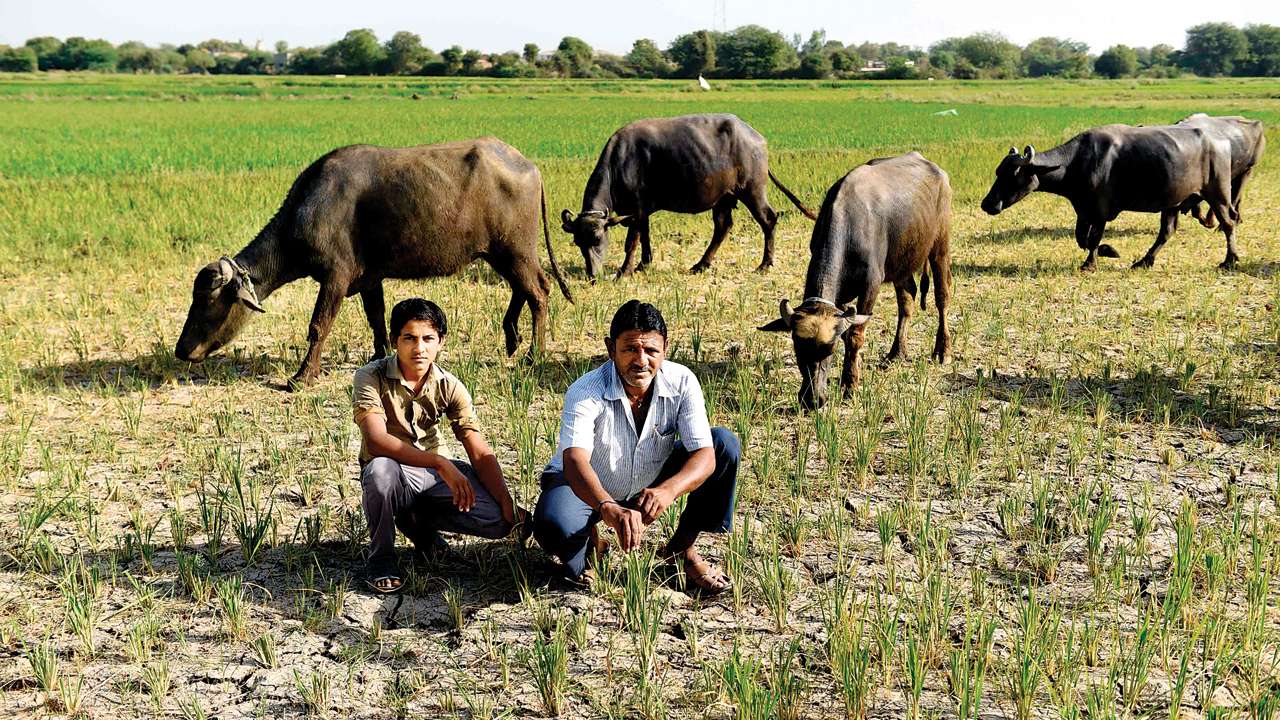
“My name is Kiranjit Kaur. My father was a farmer. He committed suicide two years ago”
There was a hushed silence in the room.
Kiranjit, a girl in her early twenties, was presenting her heart-rending testimony before a small audience comprising politicians, economists, civil society leaders and farmers and farm women who had lost their son or father over the last few years, at an event organised by ‘Committee for Farmers and Families of Agrarian Suicide Victims’ at Chandigarh recently. With the state government officially admitting that 16,000 farmers and farm workers have ended their own lives since the year 2000, the frontline agricultural state of Punjab has now turned into a hotbed of farmer suicides. There is hardly a day when I don’t find news reports of two, three or four farmers committing suicide not splashed in the daily newspapers.
While the testimonies were being presented, and tears rolled from the eyes of many participants, including experts, the common factor one could visualise was mounting indebtedness. But there is more to it than what meets the eye. Over the years, travelling across the country and meeting many families of farmers who had taken poison or hung themselves from a tree or rooftop, I have tried to look at the reasons that added to growing indebtedness. After all, it is a known fact that farming has been rendered uneconomical over the years, and farmers have been forced to draw more credit thereby pushing them into a vicious cycle of indebtedness. Credit pe credit, and then taking credit from another source to pay back the earlier credit has now become a norm.
The first time I visited a farm victim’s family to understand the reasons behind the sudden spate of suicides was in 1987 when 37 farm suicides were reported from Warangal district in Andhra Pradesh. Across the country, from Bundelkhand to Vidharbha, from Karnataka to Punjab, I have tried to ascertain the reasons behind the suicide epidemic. If more than 3.18 lakh farmers have ended their own lives in the past 22 years as per the National Crime Record Bureau (NCRB) statistics, there must be a range of reasons that would have forced these farmers to die.
That farmers are under stress whatever be the localised conditions, is a foregone conclusion. But peeling the layers one by one, I have come to the conclusion that invariably it boils down to the denial of a rightful income.
Farmers have been deliberately kept impoverished. They have been denied a profitable income, leaving them at the mercy of banks or the money lenders. If after 50 years of Green Revolution, the average income of a farming family in 17 States, which is roughly half the country, stands at a mere Rs 20,000 a year as per the Economic Survey 2016, there is something terribly wrong with the way successive governments have treated agriculture. To keep food inflation under control, farmers have been denied a remunerative price. Therefore, average farm incomes have remained more or less frozen over the years, with the annual rise in farm prices not even matching the inflation rate.
Now read another testimony. “We were growing food, but couldn’t afford to buy it. We worked 80 hours a week, but we couldn’t afford to see a dentist, let alone a therapist. I remember panic when a late freeze threatened our crop, the constant fights about money, the way light swept across the walls on the days I could not force myself to get out of bed.” The farmer who said this is not from India. Ginnie Peters is a US farmer, whose husband had committed suicide last year. If even in the US, where we hear of massive subsidies being doled out to farmers, how come some farmers are committing suicide? Well, the answer is simple. Nearly 80 per cent of the US farm subsidies go to the agribusiness companies and the rich farmers.
Dr Michael Rosmann is a US farmer, who also is a psychologist. In an article in the journal Behavioral Healthcare, he wrote: “Farming has always been a stressful occupation because many of the factors that affect agricultural production are largely beyond the control of the producers.” And like he said, the biggest factor is that the output prices are not in the control of farmers. To keep inflation low, the entire burden is very conveniently passed on to hapless farmers. Marguerite Metenier is a French farmer, whose husband shot himself in the face a year ago. She bemoans: “How can anyone want to be a farmer today? What is the point to being in debt all the time, and toiling for no reason? We are sacrificed so the consumer is always happy with low prices.”
Kiranjit is too young to understand the political economy of food. She may not realise that her father died not because farming was an unproductive profession, but because the consumers have to be kept happy with low prices. Why she doesn’t realise is that every time a farmer undertakes crop cultivation, he invariably ends up cultivating losses.
The author is an agricultural policy analyst. Views expressed are personal